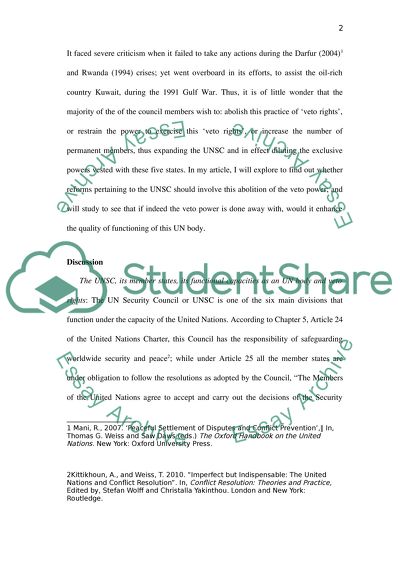Cite this document
(“United Nations Security Council Reform Essay Example | Topics and Well Written Essays - 3000 words”, n.d.)
Retrieved from https://studentshare.org/politics/1573129-united-nations-security-council-reform
Retrieved from https://studentshare.org/politics/1573129-united-nations-security-council-reform
(United Nations Security Council Reform Essay Example | Topics and Well Written Essays - 3000 Words)
https://studentshare.org/politics/1573129-united-nations-security-council-reform.
https://studentshare.org/politics/1573129-united-nations-security-council-reform.
“United Nations Security Council Reform Essay Example | Topics and Well Written Essays - 3000 Words”, n.d. https://studentshare.org/politics/1573129-united-nations-security-council-reform.


